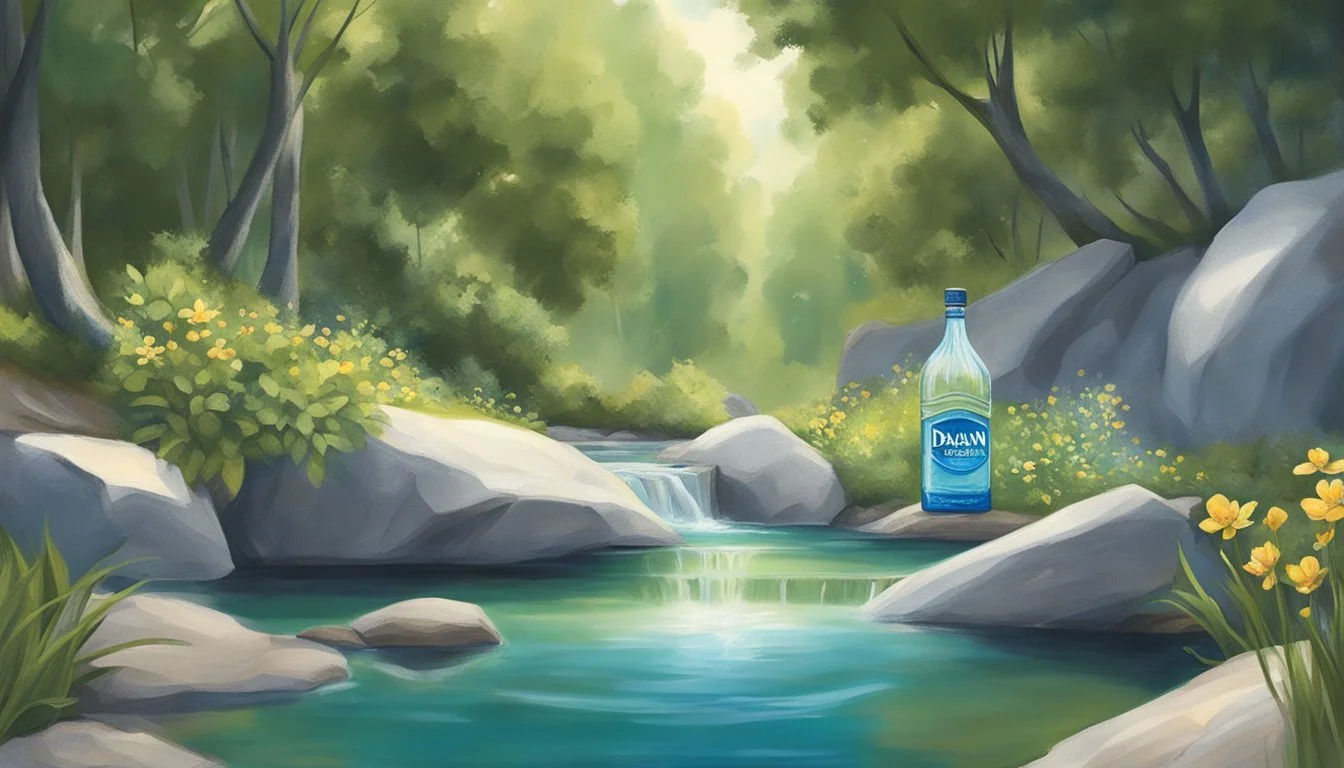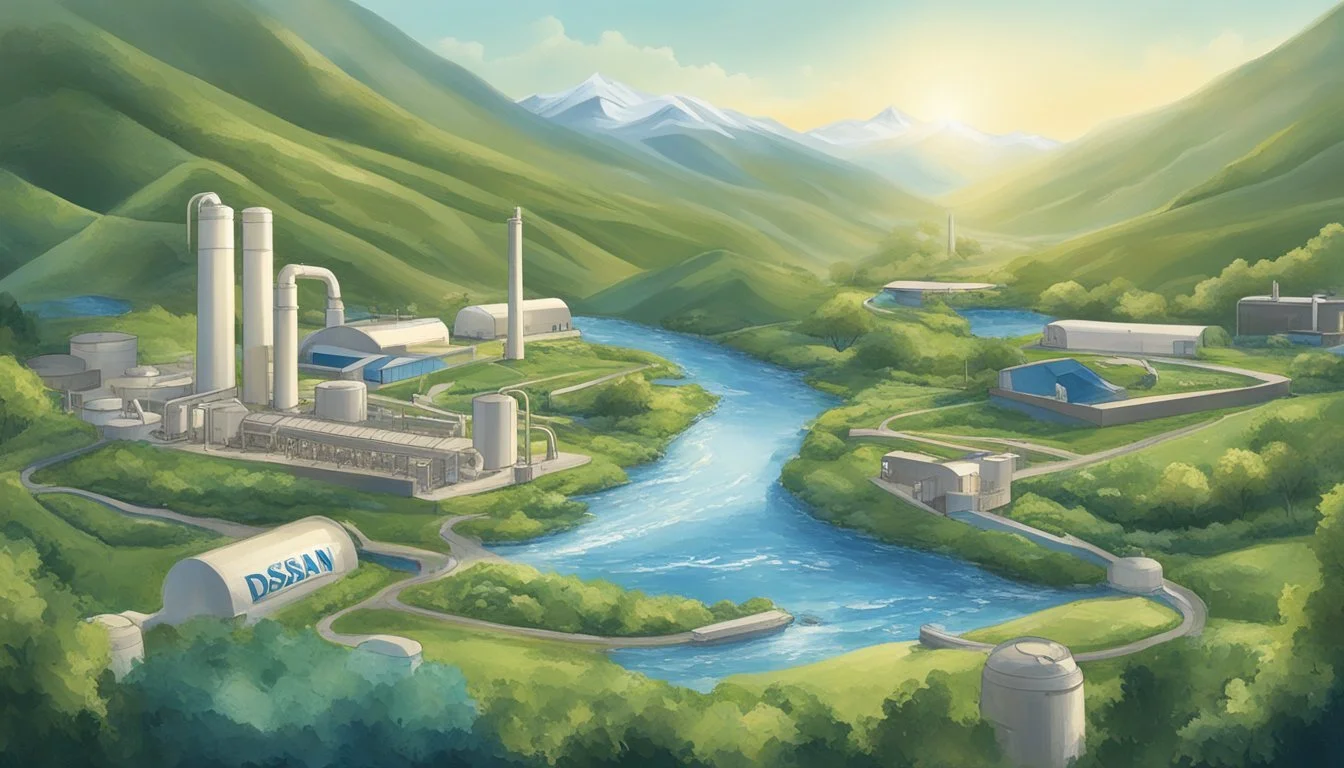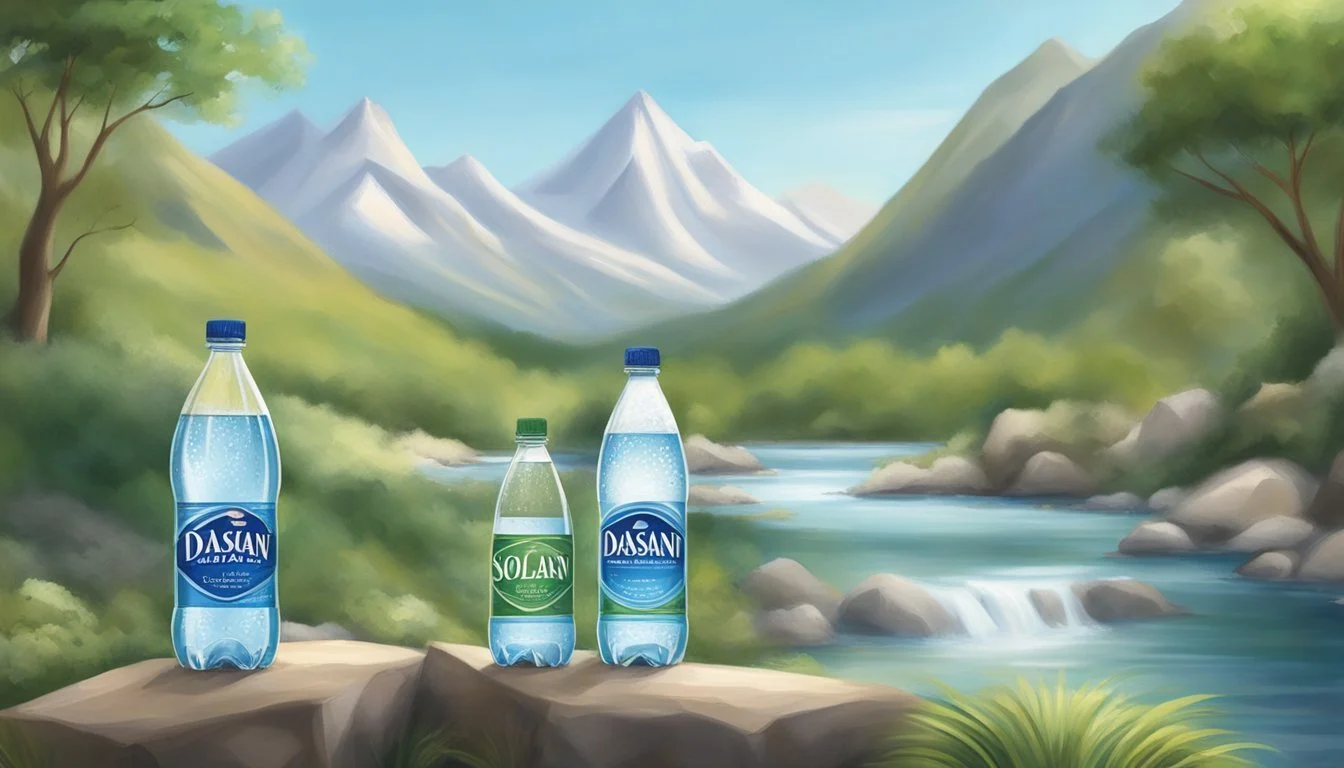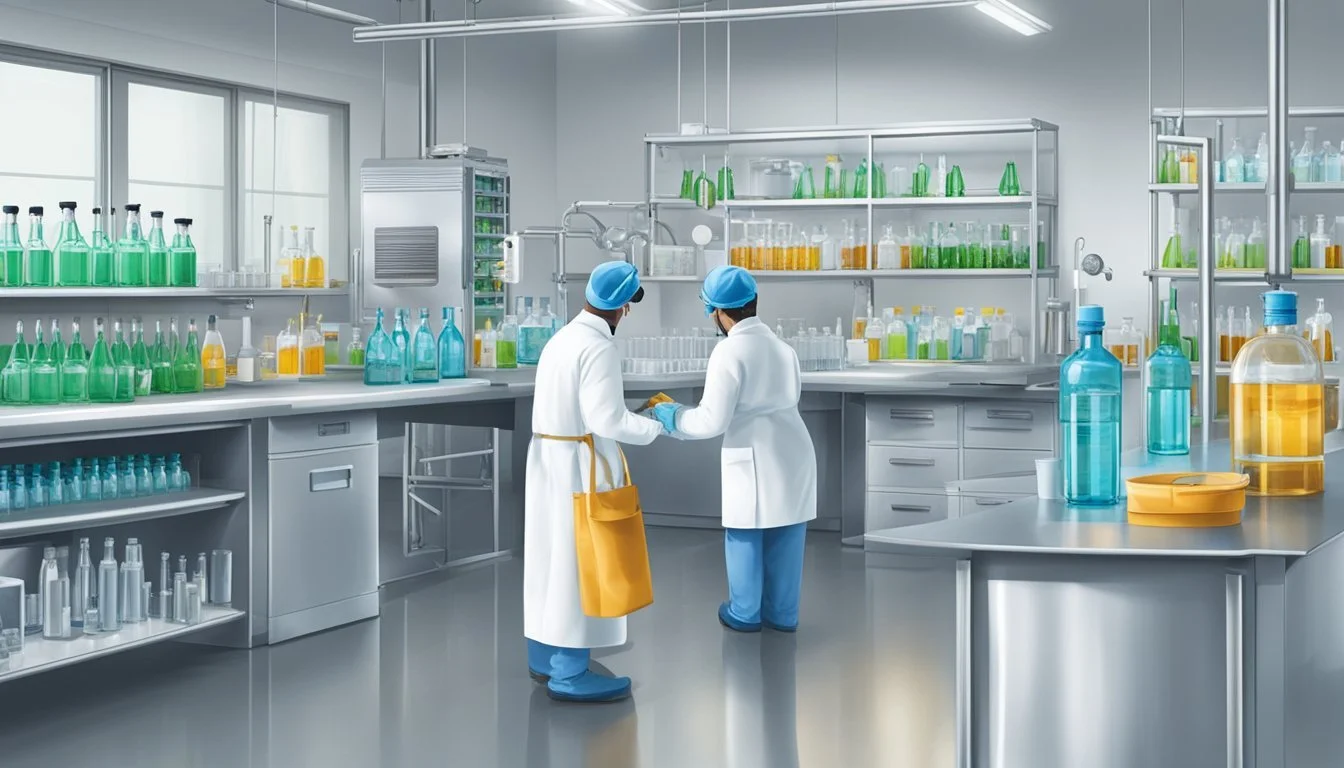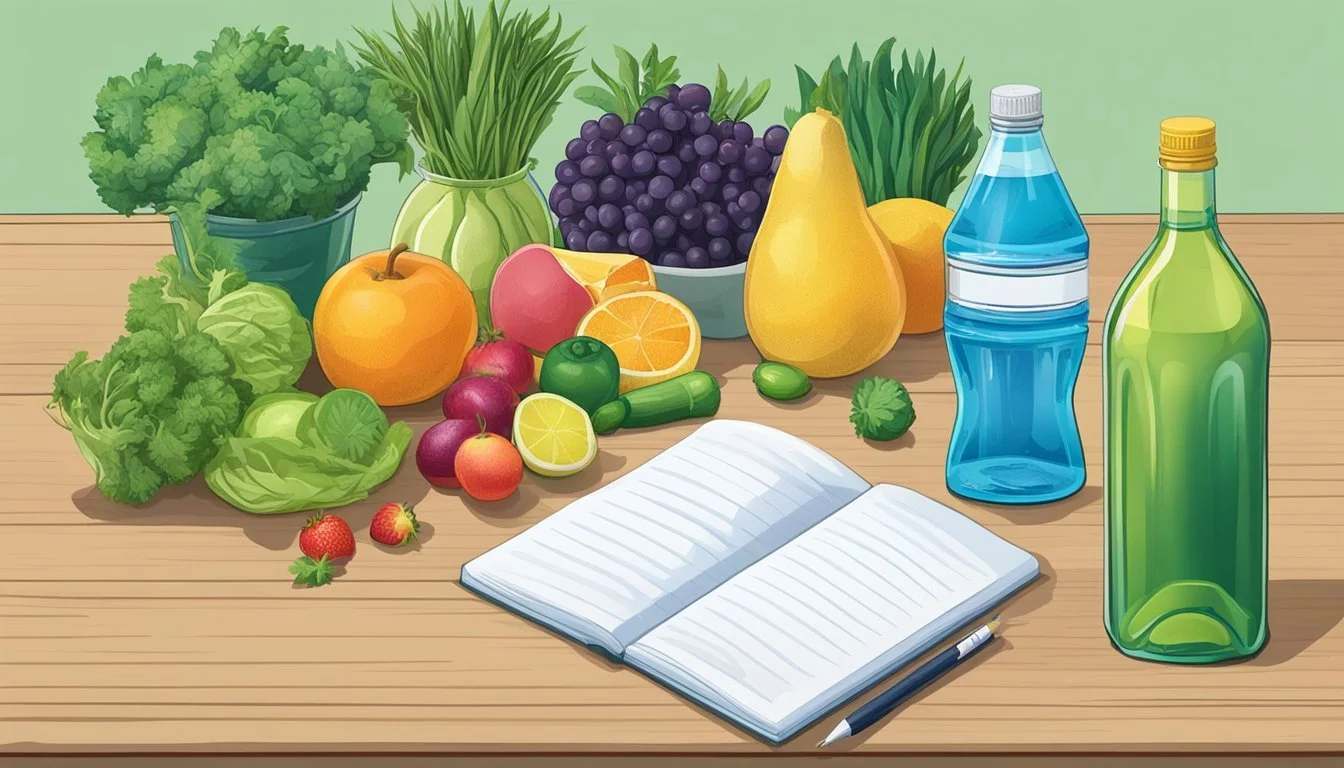Solán de Cabras vs. Dasani
Comparing Quality and Taste
When it comes to choosing a bottled water brand, consumers often face a tough decision. Solán de Cabras and Dasani are two well-known options in the market, each with its own distinct qualities and reputation. Between the two, Solán de Cabras is often considered the superior choice due to its unique mineral composition and smooth taste.
Solán de Cabras, sourced from a natural spring in Spain, prides itself on its high-quality mineral profile. This makes it not just a hydration option but an experience. On the other hand, Dasani, a product of The Coca-Cola Company, is treated municipal water, often criticized for its taste and absence of beneficial minerals.
Whether you prioritize taste, mineral content, or sustainability, today's bottled water options require thoughtful consideration. This deep dive into Solán de Cabras and Dasani will help you make an informed choice for your hydration needs.
The Importance of Water Quality and Sources
Water quality and its sources play a crucial role in determining the benefits and safety of bottled water. Factors such as pH level, mineral content, and the origin of the water source distinguish between brands like Solán de Cabras and Dasani.
Understanding pH and Mineral Content
The pH level of water indicates its acidity or alkalinity. Solán de Cabras typically has a pH of approximately 8.0, aligning closely with natural spring conditions. Conversely, Dasani's pH ranges around 5.0, making it more acidic.
Mineral content is another important consideration. Solán de Cabras is known for its rich mineral composition, including calcium, magnesium, and bicarbonate. These minerals can support various health functions, such as bone health and metabolic functions. Dasani, on the other hand, adds minerals like magnesium sulfate, potassium chloride, and salt to enhance flavor, but it does not naturally contain these minerals.
Origin of Solán de Cabras and Dasani
Solán de Cabras originates from the Serranía de Cuenca in Spain. This natural spring water is sourced from an aquifer that has maintained its purity for centuries. The water flows through underground rock layers, naturally filtering it and enriching it with beneficial minerals.
Dasani is a purified water product by Coca-Cola, sourced from local municipal water supplies. It undergoes a rigorous filtration process, including reverse osmosis, to remove impurities. Minerals are then added back for taste. The origins of Dasani's water are thus varied, depending on the location of the bottling plant.
Natural Spring Water vs. Purified Water
Solán de Cabras represents natural spring water, which is sourced directly from a spring and is naturally filtered through geological formations. This process naturally enriches the water with minerals and maintains a balanced pH level. Natural spring water like Solán de Cabras is often valued for its authenticity and natural mineral profile.
Dasani falls under the category of purified water, which is derived from various sources, often local municipal supplies. It goes through extensive filtration, including reverse osmosis and other purification methods, to ensure it meets safety standards. Despite being highly purified, the addition of minerals is primarily for taste rather than nutritional benefits.
Understanding these distinctions helps consumers make informed choices based on their preferences for flavor, health benefits, and the origins of the water they consume.
Health Benefits and Nutritional Differences
When comparing Solán de Cabras and Dasani, it's important to look into their nutritional composition and health benefits. These aspects can provide insights into which water may be more suitable for specific health and hydration needs.
Electrolytes and Mineral Balance
Solán de Cabras is known for its balanced mineral content. Sourced from Spain, it contains natural electrolytes like calcium, magnesium, and potassium. These minerals support various bodily functions such as muscle function and bone health.
Calcium aids in bone strength, while magnesium plays a role in muscle and nerve functions. Potassium is crucial for maintaining proper heart and muscle activity. The natural presence of these minerals can make Solán de Cabras more appealing to consumers who prioritize natural mineral intake for wellness.
Dasani, on the other hand, adds minerals such as magnesium sulfate, potassium chloride, and sodium chloride to its water. These added minerals are designed to enhance the taste but may not offer the same natural balance as found in Solán de Cabras.
Sodium Chloride can aid in maintaining fluid balance but should be consumed in moderation. Potassium Chloride and magnesium sulfate can support electrolyte balance, yet excessive consumption may lead to adverse effects.
Hydrating Efficacy of Water Brands
Hydration efficacy is a critical factor for many consumers. Solán de Cabras offers a smoother taste due to its balanced mineral profile. The natural minerals it contains can aid in better hydration and electrolyte replenishment, making it suitable for daily consumption and active lifestyles.
Dasani is processed water with added minerals to improve taste. While it is widely available and convenient, its hydration efficacy may differ due to the synthetic addition of minerals. The presence of magnesium sulfate and potassium chloride can affect the absorption rate and overall hydration experience.
Consumers have noted a slight tang in Dasani, which might influence personal preference. In contrast, Solán de Cabras's natural composition usually results in a clean, crisp taste that appeals to those seeking a pure hydration source.
Each brand offers unique characteristics that cater to different hydration preferences and health considerations.
Environmental Impact and Sustainability
This section focuses on the materials and recycling practices of Solán de Cabras and Dasani, as well as their water extraction methods and eco-friendly initiatives. The aim is to evaluate how each brand addresses sustainability and environmental concerns.
Bottle Materials and Recycling Practices
Solán de Cabras uses distinctive blue-tinted glass bottles for their premium product. Glass is 100% recyclable and can be reused indefinitely without loss of quality. This reduces plastic waste and promotes environmental sustainability.
Dasani, under the Coca-Cola brand, primarily uses plastic bottles. Dasani has implemented technology like the HybridBottle and PlantBottle, which combine recycled and plant-based materials. They have also increased efforts in promoting recycling at convenience stores and other retail locations.
Boxed Water alternatives are not employed by either brand, which could be an area for potential improvement. Social media campaigns have been used by both brands to promote their eco-friendly initiatives and encourage consumer participation in recycling.
Water Extraction and Eco-Friendly Initiatives
Solán de Cabras sources its water from a natural spring in Spain. The brand takes measures to protect the surrounding environment and ensure sustainable water extraction practices. Their facility uses renewable energy and aims to minimize waste production.
Dasani sources water locally within the United States to reduce the carbon footprint associated with long-distance transportation. The brand works on innovation projects aimed at reducing their environmental impact, including water-efficient bottling processes and community water replenishment initiatives.
Environmentally Friendly efforts by both brands include participating in global sustainability programs and advocating for reduced water usage through social media. However, the effectiveness and public transparency of these initiatives vary between the brands.
Taste Profile and Water Sommeliers
Both Solán de Cabras and Dasani offer distinct taste profiles influenced by their mineral content and sourcing. Personal preferences play a substantial role in determining which water one might find more appealing.
The Role of Minerals in Taste
Minerals significantly impact the taste profile of bottled water. Solán de Cabras is known for its purity and balance, originating from a natural spring in Spain and boasting a well-balanced mineral composition. This mineral mix contributes to its smooth and refreshing taste.
Dasani, produced by Coca-Cola, often contains added minerals such as magnesium sulfate and potassium chloride. These additions provide a crisp yet slightly saline taste. The specific mineral content in Dasani differentiates it from many other bottled waters, including Solán de Cabras.
Mineral Composition of Solán de Cabras and Dasani:
Mineral Solán de Cabras (mg/L) Dasani (mg/L) Calcium 45 Variable (added) Magnesium 2.5 10 (added) Sodium 1.1 20 (added)
The unique mineral makeup in each brand provides distinctive characteristics, contributing significantly to the perceived taste.
The Subjectivity of Personal Preference
Personal preference is critical when choosing between Solán de Cabras and Dasani. Water sommeliers like Martin Riese often emphasize the subjective nature of taste, noting that individual palates perceive flavors differently.
Some might prefer Solán de Cabras for its naturally sourced, clean taste. Others might lean towards Dasani because of its consistent and recognizable flavor profile. Personal experiences and biases can heavily influence these choices.
Additionally, taste tests and blind comparisons could further highlight personal preferences. For instance, someone accustomed to added minerals may find Dasani more appealing, while another might appreciate the natural purity of Solán de Cabras.
Key Factors Influencing Preference:
Mineral Content
Source of Water
Individual Palate
Brand Familiarity
Brand History and Consumer Perception
Solán de Cabras and Dasani have unique histories and distinct public images that influence their market positions. Their legacy, market presence, and consumer perceptions highlight the differences between these bottled water brands.
Legacy of Solán de Cabras
Solán de Cabras dates back to 1790, originating from a spring in Spain known for its mineral-rich water. Authenticity is a key part of its appeal, often marketed as a premium product in the fine water segment. Bottled in iconic blue bottles, it is associated with wellness and luxury.
Consumer perception leans towards viewing it as a high-quality, health-oriented choice. Its reputation benefits from endorsements by health professionals and its strong social media presence promoting a lifestyle of health and authenticity.
Dasani’s Market Presence and Public Image
Dasani, launched in 1999 by Coca-Cola, leverages the global reach of its parent company. It undergoes a rigorous purification process and is fortified with minerals for taste. This approach places it in the mass-market segment.
Consumer perception varies widely. Some appreciate its consistent quality and availability, while others criticize it for being overly processed. Coca-Cola’s branding ensures broad recognition, contributing to its strong market presence. However, social media discussions often highlight debates about its taste and the environmental impact of its plastic bottles.
The brand maintains significant market share through widespread distribution and aggressive marketing campaigns.
Regulatory Oversight and Safety Standards
When comparing Solán de Cabras and Dasani, it's crucial to understand the regulatory oversight and safety standards that ensure both bottled waters are safe to drink.
FDA Regulations on Bottled Water
The FDA (Food and Drug Administration) regulates bottled water under the Federal Food, Drug, and Cosmetic Act. These regulations mandate that bottled water must adhere to safety and quality standards that are at least as stringent as those set by the Environmental Protection Agency (EPA) for tap water. The FDA verifies that bottled water processors abide by certain Good Manufacturing Practices (GMPs) to ensure safety and cleanliness.
The FDA also enforces limits on contaminants such as Bromate, lead, and other possible dangers. For instance, Bromate levels must be below 10 parts per billion. Regular inspections and testing help to maintain these standards. Bottled water producers, including those for Solán de Cabras and Dasani, must regularly conduct laboratory analyses to adhere to these regulations.
Ensuring Purity and Absence of Contaminants
Both Solán de Cabras and Dasani follow stringent measures to ensure the purity and safety of their water. Solán de Cabras, sourced from a protected spring, undergoes multiple filtration stages to remove impurities. Its natural mineral composition is thus preserved while ensuring safety.
Dasani, produced by the Coca-Cola Company, utilizes a multi-step purification process that includes reverse osmosis. This method effectively removes various contaminants, resulting in clean, crisp water. Additionally, Dasani enhances its water with a blend of minerals for taste.
To protect consumers against contaminants, both brands are subjected to rigorous testing protocols. These tests aim to detect and eliminate any microbiological, chemical, or physical impurities, ensuring that the final product is safe for consumption.
Water Brand Comparison
Solán de Cabras and Dasani represent two distinct options in the bottled water market. This section contrasts their qualities and market positioning, offering readers an insight into popular competitors.
Solán de Cabras vs. Dasani: Head-to-Head Contrast
Solán de Cabras is renowned for its mineral-rich content and historical origins. Sourced from the Serranía de Cuenca in Spain, it boasts a heritage of over 3,600 years. The water is often praised for its purported healing properties and consistent taste.
Dasani, produced by The Coca-Cola Company, is widely available and known for its crisp, clean flavor. However, it has faced criticism for containing added minerals and fluoride. Dasani's affordability and brand recognition make it a popular choice in supermarkets and vending machines.
Comparatively, Solán de Cabras targets premium consumers who appreciate natural mineral water, while Dasani appeals to a broader market seeking reliability. The specific mineral content and source purity are key differentiators between the two brands.
Competitors and Market Alternatives
The bottled water market offers various alternatives, each with unique selling points.
Fiji Water stands out for its silica content and artesian aquifer source. Essentia provides ionized, alkaline water, catering to health-focused consumers. Smartwater and Evian are also popular for their distinctive flavors and mineral compositions. Voss is marketed for its sleek bottle design and pure taste.
Other notable brands include Aquafina, similar to Dasani in terms of market reach, and Acqua Panna, favored for its Tuscany origins and smooth profile. Icelandic Glacial offers naturally alkaline water from Iceland.
In the U.S., Arrowhead, Poland Spring, and Deer Park dominate regional markets. Lifewtr and Core Hydration focus on balanced pH levels and added electrolytes.
Brands like San Pellegrino and Mountain Valley provide sparkling options, while Ice Mountain, Zephyrhills, and Ethos Water cater to various regional preferences and social causes.
Thus, the market is diverse, catering to different tastes, health concerns, and price points.
In-Depth Analysis: Filtration and Purification Processes
The filtration and purification processes of Solán de Cabras and Dasani are distinctive and play a crucial role in defining the quality and characteristics of each brand's water. One relies on ancient natural springs, while the other employs modern filtration technology.
Reverse Osmosis vs. Spring Water Collection
Solán de Cabras sources its water from a spring in the Serranía de Cuenca mountains, Spain. This natural mineral water is filtered by nature, taking over 3,600 years to emerge. The water collects essential minerals like bicarbonate, calcium, sodium, potassium, and magnesium, ensuring a balanced mineral composition. The entire process leverages natural decanting, preserving the water’s purity and quality without additional industrial filtration.
Dasani, on the other hand, utilizes reverse osmosis to filter tap water. This method removes impurities, contaminants, and minerals from the water, resulting in a purified product. After reverse osmosis, Dasani adds a carefully chosen blend of minerals back into the water to enhance its taste. This process ensures consistent quality and taste across all bottles but makes it quite different from naturally sourced spring water.
Assessing Alkaline Water Claims
Solán de Cabras boasts a naturally balanced mineral composition, which suggests a potential alkaline pH level beneficial for hydration and maintaining body pH balance. The natural filtration through rock layers enriches the water with minerals, contributing to its alkaline properties. However, the exact pH level and its health impacts can vary, requiring detailed pH testing for exact specifications.
Dasani's reverse osmosis process tends to neutralize the water's pH. Any alkaline characteristics are usually adjusted through the addition of minerals post-filtration. While some bottled water brands specifically market alkaline water with higher pH levels to enhance hydration benefits, Dasani maintains a more neutral pH, focusing on flavor and purity rather than marketing specifically as alkaline water.
By examining these elements, consumers can better understand the distinctions between these two brands in terms of filtration and the touted benefits of alkaline water.
Consumer Guidance and Decision-Making
Choosing the right bottled water involves considering personal taste preferences and understanding the mineral content of the water. This ensures proper hydration and a satisfactory drinking experience.
How to Choose the Right Bottled Water
When selecting bottled water, consider personal taste preferences and hydration. Some people prefer the clean taste of still water while others like sparkling varieties. Flavors may also play a role, as some bottled waters include natural or artificial flavors for an enhanced taste experience.
Additionally, bottled water labels often provide information on sodium, magnesium, calcium, potassium, and other minerals. Comparing these can help identify the water that best meets personal needs, such as low-sodium options for those watching their sodium intake.
The source and processing method (e.g., spring, purified) can also affect both taste and quality. Brands like Solán de Cabras and Dasani often emphasize their unique purification processes, which can also impact the final product.
Understanding TDS and Water Hardness
Total Dissolved Solids (TDS) measures the combined content of all inorganic and organic substances in the water. TDS levels influence water taste and are often indicated on bottled water labels. For example, a TDS level of 600 might mean the water has a richer mineral content, potentially impacting its taste and health benefits.
Water hardness, determined by the concentration of minerals like calcium and magnesium, affects more than just taste. Hard water generally has higher levels of these minerals, while soft water has them in lower concentrations. Understanding whether the water is hard or soft can be useful for those who prefer or need specific mineral levels.
Sulfate and bicarbonate values also contribute to the water profile. These minerals can impact both taste and potential health benefits, such as aiding in digestion or providing essential electrolytes.
When comparing Solán de Cabras and Dasani, consumers should look for differences in their TDS and water hardness to make an informed choice.


